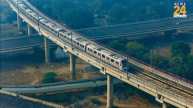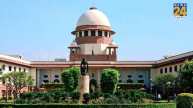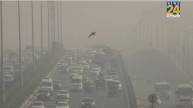Lakshmana Venkat Kuchi
Heavy rains, rivers in spate, flooding, and landslides wreaking havoc across North India, and persistent downpour threatening to throw normal life out of gear in few south Indian pockets and central India is something that we cannot escape. And more ominously, if environmentalists, town planners and architects are to be believed, more disasters could strike in the near future given the manner in which wanton ‘development’ has taken place.
The videos of entire buildings getting washed aways, submerged cars and vehicles racing along the swollen rivers in Himachal Pradesh Uttarakhand and even parts of flooded plains – including national capital that at one stage had flood waters threatening to engulf the VVIPs in Lutyens Delhi, CM Arvind Kejriwal’s house very close to be submerged – had the entire nation rivetted in horror and fear.
Conversations with top architects, some of whom are part of a collective that advises state governments here and there, are scary but they also offer some hope, but it depends on a strong collective will to repair the damage to the extent possible and pray that nothing untoward happens.
Sneha Gurjar, director, CEM Engineers, who has over a decade and a half of experience in master planning, architectural design, engineering and project management consultancy, believes that most of the ills plaguing us at present are due to unplanned development but offers hope that “still we can plan ahead to prepare for natural disasters and minimise losses.” But it requires strong discipline and dedication to make corrections where necessary with brutal honesty, with the single-minded objective of protecting the future generations in the long run and protecting selves in the short run, she said.
What to speak of flooding, rains and gusty sandstorms that north India suffers from – most of the north India is in the seismic zone. Now not to scare the people, but “in our fraternity, we are waiting for earthquakes to hit,” says Sneha.
Within Delhi there are some pockets of South Delhi that are very earthquake prone, she said, but added “on this front the government guidelines have just been modified and considerable work has been done for preventives. Most government buildings and those built by the DDA etc are safer as compared to the private builders apartments, which they cut corners by the miles.”
But the recent heavy rain and floods and havoc they have caused, and still threaten to cause more damage in the times to come, has once again highlighted that our infrastructure is unable to support the great growth we are seeing,” Sneha said, which is something that fellow architects and town planners agree with.
Anand Sharma, Founder and Partner Design Forum International, a renowned Architectural firm that built many prestigious projects across the country, believes that “for all this, the onus is on us. Basically, the problem is that responsibility is being shrugged at every level, at the individual House owner level at the designers level, which is us and most importantly, at the master planning level, which is predominantly the domain of governments.”
According to him, most of the times, the masterplans are created primarily cater to ease of transportation and ease of movement of people. If people are working, then people need to live and people to have a recreation, right? So, they become the primary drivers of creating masterplans.
But, when one pays scant respect to how water moves, how trees move, how wind movement happens, we run into issues arising out of nature’s fury, Sharma said and added, “on paper we have strong rules. But in practice often they are flouted and the future problems are thus created. In places where lakes ought to have been we now have commercial and residential towers. Further urbanisation will perhaps add to the problems.
“What perhaps needs is that our overall emphasis on development has to change,” Sharma said referring to the ecological disasters that hit the hilly state of Uttarakhand recently.
“In general, we ought to remember what was there before cities. When you play with that fabric, these disasters to happen. Blatant urbanisation in the guise of development perhaps is the cause of floods because the old drainage channels are being damaged as development takes place. Earthquakes and landslides and other accidents take place fragile areas have been blasted for building tunnels and roads. See what happened at Rudraprayag and Jyoshimath,” he said.
Is there hope for us?
“We are only occupying a minuscule portion of overall land surface that earth has to offer. But we are polluting, polluting in a way that is reversible. If we can live in harmony with nature, that is a step in the right direction,” he said listing out things that can be done. Projects of mass rapid transit are a step in the right direction, and so is information highway.”
But the main problem is that infrastructure always plays catch up with development, which happens first. And this is the root cause of many a problem,” Sharma said.
Rahul Kadri, principal architect and partner, IMK Architects of Mumbai and Bengaluru, laments that at the base level, say municipal bodies, not many have proper urban development planning departments. There are any number of departments but they lack coordination that would result in better infrastructure and overall planning.
In the context of floods up in the hills and the kind of destruction we have seen in Uttarakhand and Himachal Pradesh this time, what one can say is that Himalayas are not made of hard rock but are comparatively fragile. Now the speed of the water was so high that it swept away everything in its way. So, first one has to slowdown the pace of water, if need be by widening channels, building check dams, and using scientific building procedures.
But especially in the hills, one has seen wanton construction happening all over, and this overbuilding has caused more damage than one can fathom now.
Professionals who know the subjects and terrain ought to be entrusted with making plans and those must be implemented strictly. But in theory everyone agrees that this is the best course But what happens in practice is that often the rules are overlooked, and constructions are allowed left, right and centre.













